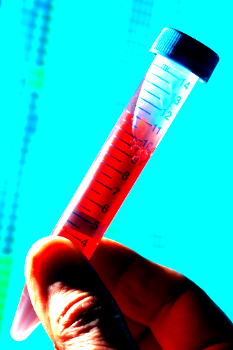New quest takes blood tech to cutting edge
 British bio-engineers are embarking on a project to create custom blood.
British bio-engineers are embarking on a project to create custom blood.
The British National Health Service has outlined several bold new initiatives aimed at filling shortages in the vital supplies by developing new lab-grown blood.
Blood banks are in near-perennial shortage of one type or another, and the logistical challenge of getting the right blood to the right person at the time remains significant.
To ease the strain and save more lives, the NHS’s new strategic intents and goals are aimed at breaking new ground in wound healing, transfusions, or blood substitutes.
The goals come with a bold commitment – to be able to use custom lab-grown blood in two patients within two years.
The process to create blood in the lab begins with the extraction of stem cells from umbilical cord blood, before they are cultured with adult stem cells.
The umbilical cells - specifically, ‘mesenchymal’ cells - lack any clearly defined polarity, and are often found as part of an extracellular matrix.
Depending on their internal programming and cues they receive from their surroundings, the special type of cell can develop into anything from connective tissue to bone or cartilage.
Important for this task, they can be coaxed into the type of cells that make up the lymphatic and circulatory systems – meaning they have everything it takes to become red blood cells.
The first major goal of the new clinical trials is to compare of the survival of the manufactured red cells to that of standard, naturally formed red cells.
The usefulness of a ready supply of special purpose cells would be hard to overstate.
It would help those with rare or complex blood types, and could be used to replace blood cells that are compromised in disorders like sickle-cell anaemia.
More broadly, the researchers envision a world where blood that is made to order and optimised just for the patient.









 Print
Print